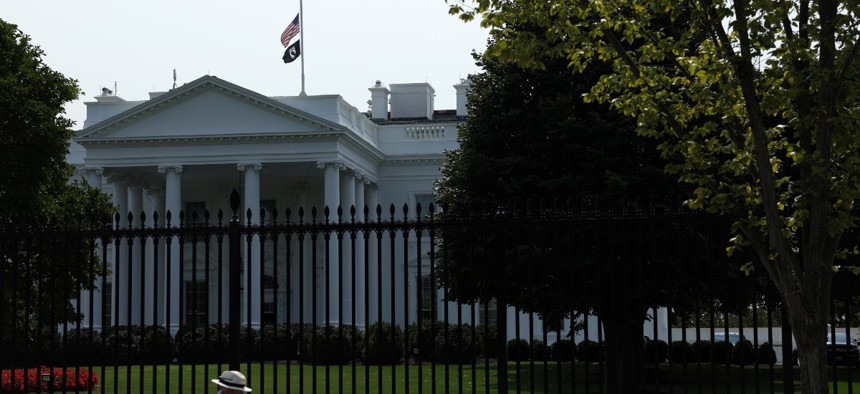Technical Standards Work is a Priority for White House International Policy

Alex Wong/Getty Images
Leaders in the public sector doubled down on the U.S. need to participate in global technical standards to support national security and market dominance.
The Biden administration is continuing its international partnerships in developing more universal technical standards as part of its bid to maintain leadership in major technology sectors.
White House Senior Director for Technology and National Security Tarun Chhabra spoke with Brookings on Friday morning, discussing competition between the U.S. and China in the technical space, as well as the semiconductor sector. Chhabra emphasized the bilateral agreements the U.S. has fostered recently to develop ubiquitous technical standards for new technologies that keep American companies competitive on a global scale.
“I think what's happened there is you're finding, you know, organically—and now formalized in some way through the leadership of NIST at [the Department of] Commerce—you know, international standards cooperation,” Chhabra said. He clarified that earlier this year, Biden administration officials began talks with the Asian quad countries—composed of Australia, India, Japan—focused on developing common standards.
The U.S. has also begun similar talks with partners in the European Union.
Chhabra said that defining these common standards will help the U.S. continue to export its technology products with limited legal hurdles.
“We would like to lower barriers and make it easier for us to cooperate with our key allies and partners as well and to open up new markets, right, where it may be more challenging,” he said.
Chhabra also encouraged subject matter experts to work in the public sector and agencies to prioritize funding for workforce talent development and retention, to keep U.S. technologies and tech policy competitive.
Chhabra’s comments come as other government officials, particularly within Commerce, have underscored the importance of participating in international technical standards and framework development for emerging technologies like artificial intelligence, biotechnology, data privacy and quantum computing, among others.
He noted that in addition to the economic imperative, maintaining leadership in new technologies is critical to national security and preventing dependencies on potential foreign adversaries.
“We've been focused really on both the technology leadership part—both through manufacturing, where we're kind of really concentrating on leading edge, as well as the R&D—but also on the supply chain elements as well,” he said.






